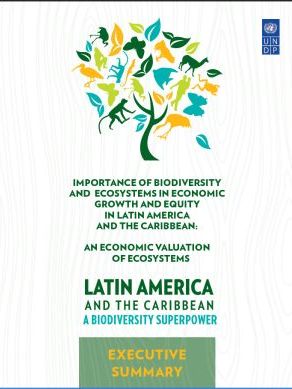Ecosystem Services Assessment for Local Climate Adaptation Measures in the Caribbean
- Project
- Duration
-
-
The BMZ/KFW funded project 'Coastal Protection for Climate Change Adaptation in the Small Island States in the Caribbean' aims to improve coastal ecosystem services to reduce the impacts of climate change in Jamaica, Grenada, Saint Lucia, and Saint Vincent and the Grenadines. In total, 11 local adaptation projects have been funded in these four countries. Ecologic Institute provides technical assistance to each of the local adaptation projects by co-designing an indicator framework to monitor and assess their effects on coastal ecosystem services.
Healthy, functioning and protected marine ecosystems provide a range of services to human beings. For example, coral reefs, seagrass beds and mangroves provide protective nursery habitats for juvenile marine species, supporting biodiversity, fisheries and tourism. In the low-lying and small island states of the Caribbean, these ecosystems also provide an important coastal defence for infrastructure and livelihoods in the hurricane season. In the face of climate change, this is even more necessary due to increases in storm frequency and intensity. However, the impacts of climate change and human activity (e.g. sea-level rise, ocean acidification and salt water intrusion) are at the same time jeapordising the services that ecosystems can naturally provide.
To increase the resilience of these ecosystems and secure continued supply of services to coastal communities, local climate adaptation activities are needed that conserve, restore and manage coastal ecosystems. Adaptation to coastal climate change can be through ecosystem-based measures (so called 'blue' or 'green' measures) that harness biodiversity and ecosystem services for the purposes of adaptation e.g. by restoring mangroves or establishing coral nurseries. 'Grey' climate adaptation measures such as constructing sea walls can also reduce impacts e.g. where wave power is particularly strong or where a cultural heritage site is at risk. At the same time, these grey measures can in some cases hamper the inherent capacity of ecosystems to mitigate climate change impacts. In many cases, a mix of grey and green/blue measures is used.
The team at Ecologic Institute conducted a series of virtual and in-situ workshops with the project grantees to:
- Review key ecosystems targeted by their local adaptation project and the services these ecosystems provide.
- Describe expected short, medium and longer term impacts of the local adaptation project on these ecosystem services and how these services contribute to climate adaptation.
- Co-define indicators to measure the contributions of local adaptation measures to ecosystem services and climate adaptation.
- Produce an indicator framework for each local adaptation project to document the impacts and outcomes for ecosystem services and climate adaptation.
On the basis of this work, a framework for upscaled monitoring and evaluation of climate adaptation measures and coastal ecosystem services in the eastern Caribbean region is proposed.




